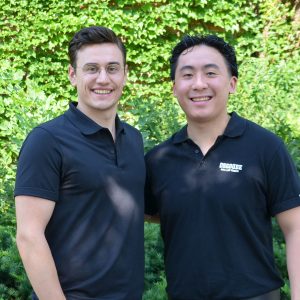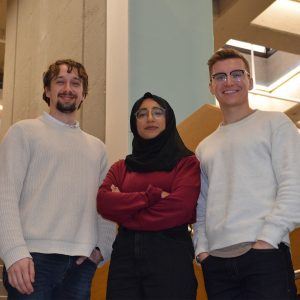The Community & Legal Aid Services Program (CLASP) is a clinical intensive program that provides students with an opportunity to gain practical experience through individual advocacy, community development projects, and law reform initiatives. Law students who complete the program will be able to bring alternative lawyering skills and a social justice perspective to their future work. CLASP aims to increase access to justice by providing representation to low-income individuals, and prioritizes groups who have historically been denied meaningful access to the legal system.
Please note students accepted into CLASP are not permitted to take any other clinical/intensive programs concurrently.
What You Will Do
CLASP’s service provision model relies on 17-20 law student Division Leaders who work in the clinic under the close supervision of lawyers (Review Counsel) for 12 months. There is a summer employment term that runs from May-August, and an academic year term that runs from September-April; both parts are mandatory for participation in the program. Division Leaders apply for, and are assigned to, one of three legal divisions (Criminal Law, Immigration Law, or Administrative Law), where they work directly with clients and other parties in the legal system.
Students participate in all aspects of client cases, from the initial screening and application to the completion of the file, at times culminating with students examining witnesses and presenting submissions at hearings and trials. Tasks are varied and case-dependent, however, they will typically include: reviewing case materials, conducting research, drafting communications and submissions and/or factums, conducting client meetings, and appearing at court or tribunals. Supervising lawyers review and approve all work completed by students through regular file reviews and ongoing communication, in accordance with the strict standards of the CLASP supervision policy and the Rules of the Law Society of Ontario.
Division Leaders participate in community development initiatives including Public Legal Education (PLE) presentations, and may be involved in broader law reform projects. Students are responsible for managing cases in CLASP’s ID clinic, which helps vulnerable individuals to get identification documents needed to access basic services. CLASP encourages students to challenge their perceptions of the lawyer-client relationship, and to develop an understanding of the multi-faceted systemic pressures on clients. During the academic year, Division Leaders also facilitate the involvement of volunteer law students (caseworkers).
Student Division Leaders receive nine credit hours on a pass-fail basis for successfully completing their clinical work during the academic year. Students are required to participate in the CLASP seminar and complete a research paper. The seminar meets weekly in the fall term and provides students with an opportunity to reflect upon their clinical experiences, the legal system, and their roles and identities as legal advocates. Each week a different topic will be explored. The topics will provide an overview of critical perspectives on the law and topics that impact social justice work. The seminar is graded for three credits. The research paper is also graded for three credits and the students will meet during the winter term to do a presentation to the class about their topic and receive feedback on the research. Training in relevant skills and substantive law is provided at different levels throughout the year both through the seminar and through ongoing supervision of the clinical work.
The CLASP program satisfies the Praxicum requirement, and the research paper meets the requirements for the Upper Year Research and Writing Requirement.
What You Will Learn
- written and oral advocacy skills
- client interviewing skills
- hearing/trial preparation including the examination of witnesses
- procedural aspects of the legal system within the division assigned
- skills for interacting with a diverse clientele and community
- working collaboratively in a legal office environment
- to identify key legal issues within a complex client narrative and to explore the effect of systemic influences on client experiences

